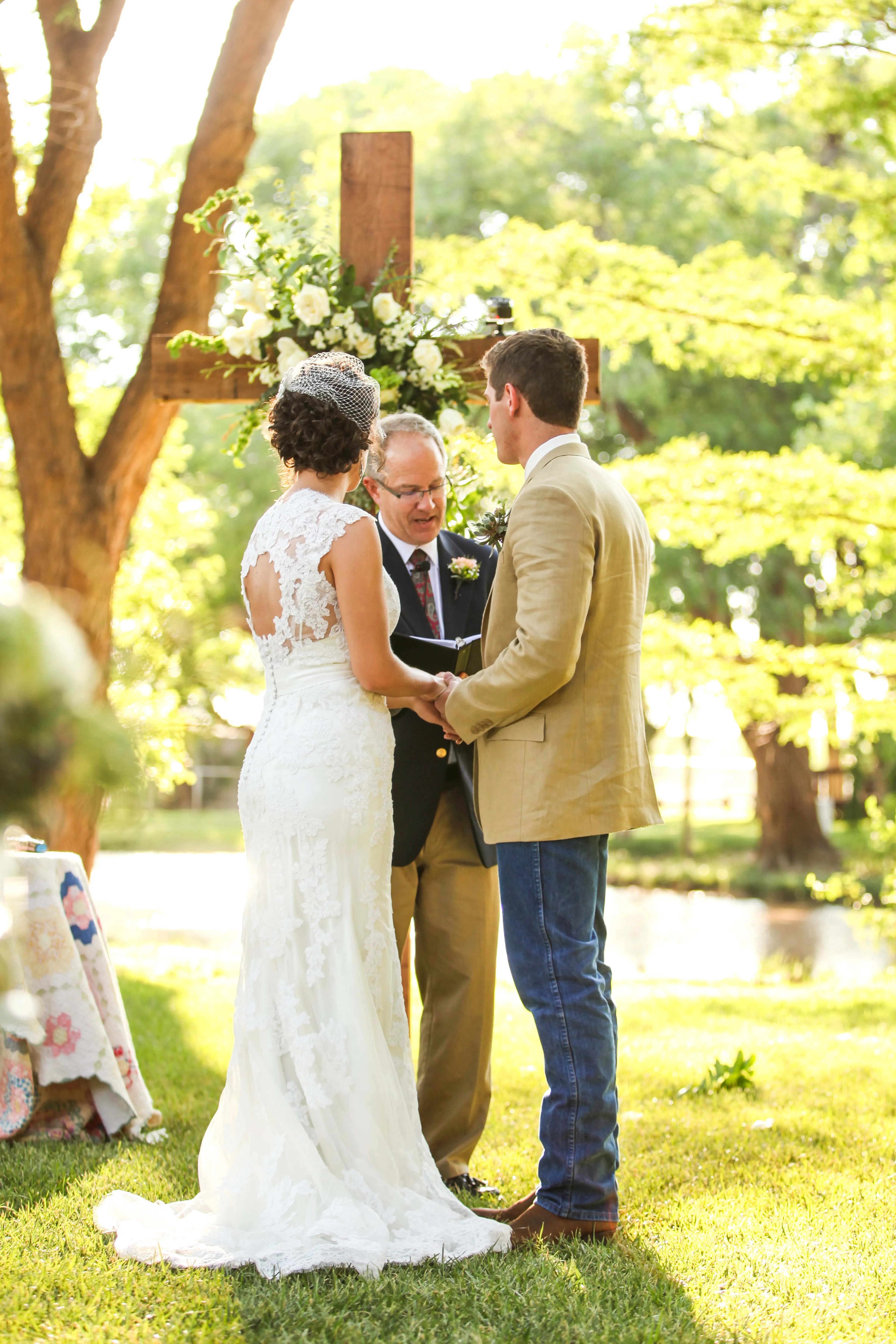Crafting a Sacred Union Christian Wedding Ceremony Guide
Imagine two souls, bound by love, standing before God, exchanging vows that will shape their lives forever. This sacred union, the Christian wedding ceremony, is a profound and timeless tradition, deeply rooted in faith and commitment. This guide will explore the intricacies of orchestrating a Christian wedding, offering insights into its history, significance, and practical execution.
The Christian marriage ceremony is more than just a legal contract; it's a spiritual covenant, a public declaration of love and lifelong devotion under the watchful eye of God. This sacred act is rich in symbolism, each element representing a facet of the couple's commitment and their journey together. From the exchange of rings to the pronouncement of husband and wife, every moment is imbued with meaning and purpose.
Planning a Christian wedding ceremony involves careful consideration of various elements, from selecting the appropriate scriptures and hymns to choosing the members of the wedding party. Understanding the theological underpinnings of the ceremony can enhance its meaningfulness for both the couple and their guests. The ceremony itself serves as a testament to the couple's faith and their belief in the sanctity of marriage.
The historical roots of Christian wedding ceremonies can be traced back to the early church. While the specific rituals and practices have evolved over time, the core principles of Christian marriage have remained constant. These principles emphasize the importance of love, fidelity, and mutual respect as the cornerstones of a successful and enduring marriage.
The significance of the Christian wedding ceremony lies in its recognition of marriage as a divinely ordained institution. It is a public affirmation of the couple's commitment to one another, blessed by God and witnessed by their community. The ceremony also serves as a reminder of the responsibilities that come with marriage, including the commitment to support and cherish one another through life's joys and challenges.
The history of Christian wedding ceremonies is rich with symbolism. Early ceremonies often incorporated elements from Jewish traditions, reflecting the shared heritage of the two faiths. Over time, distinct Christian practices emerged, including the exchange of rings, the lighting of unity candles, and the inclusion of hymns and prayers specific to the Christian faith. The white wedding dress, symbolizing purity, became a popular tradition in the 19th century.
The importance of Christian marriage lies in its foundation of love, commitment, and faith. The ceremony itself is a celebration of this sacred union, marking the beginning of a new chapter in the couple's lives. The exchange of vows signifies their promise to love, honor, and cherish one another, for better or for worse, in sickness and in health, until death do they part.
One benefit of a Christian wedding ceremony is the spiritual foundation it provides for the marriage. Rooted in faith and prayer, the ceremony invokes God's blessing on the union, offering guidance and strength for the journey ahead.
A second benefit is the community support that a Christian wedding ceremony fosters. The presence of family and friends signifies their love and support for the couple, creating a network of encouragement and accountability as they embark on their married life.
A third benefit is the emphasis on lifelong commitment. The Christian wedding ceremony emphasizes the permanence of marriage, encouraging couples to view their union as a sacred bond intended to last a lifetime. This focus on commitment can be a source of strength and stability, particularly during challenging times.
Planning a Christian wedding ceremony involves several key steps: selecting a church and officiant, choosing readings and music, and coordinating with the wedding party. A detailed checklist can help ensure that all necessary arrangements are made.
Advantages and Disadvantages of Elaborate Christian Wedding Ceremonies
| Advantages | Disadvantages |
|---|---|
| Creates a memorable experience | Can be expensive and stressful |
Challenges in organizing a Christian wedding ceremony can include budgetary constraints, scheduling conflicts, and coordinating with various vendors. Solutions involve careful planning, open communication, and seeking professional guidance when needed.
FAQ: What is the significance of the exchange of rings? The rings symbolize the unending circle of love and commitment.
Tips for conducting a Christian wedding ceremony include ensuring the venue is appropriately decorated, providing clear instructions to the wedding party, and maintaining a reverent atmosphere throughout the ceremony.
In conclusion, the Christian wedding ceremony is a deeply meaningful and sacred event, representing the union of two souls under the blessing of God. From its historical roots to its modern interpretations, the ceremony embodies the core principles of love, faith, and commitment. By carefully planning and executing this sacred rite, couples can embark on their married lives with a strong spiritual foundation, surrounded by the love and support of their community. Embracing the richness and symbolism of the Christian wedding ceremony can enrich the couple's understanding of the profound commitment they are making, setting the stage for a lifelong journey of love and faith. Take the first step in planning your Christian wedding ceremony today, and begin crafting a celebration that reflects the unique beauty of your love story.
Unlocking the secrets of 1501 w second street albany ga
Star citizen the inmates guide to the brig
Unlocking the power of welcome to my house lyrics a deep dive














